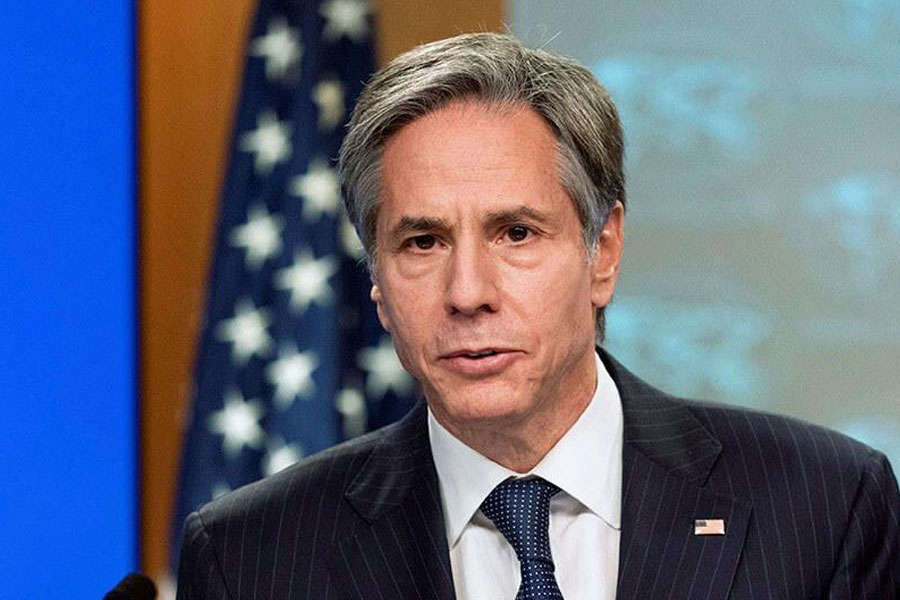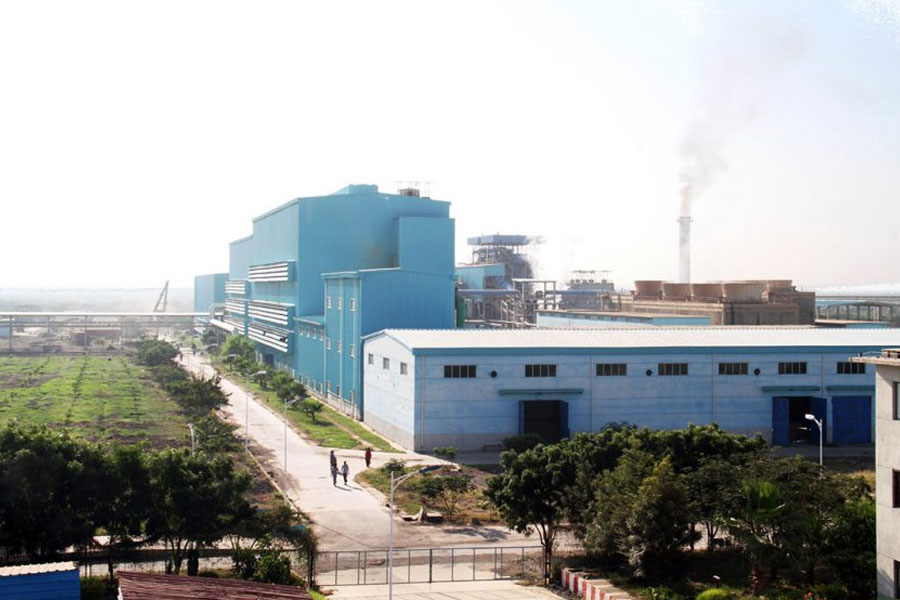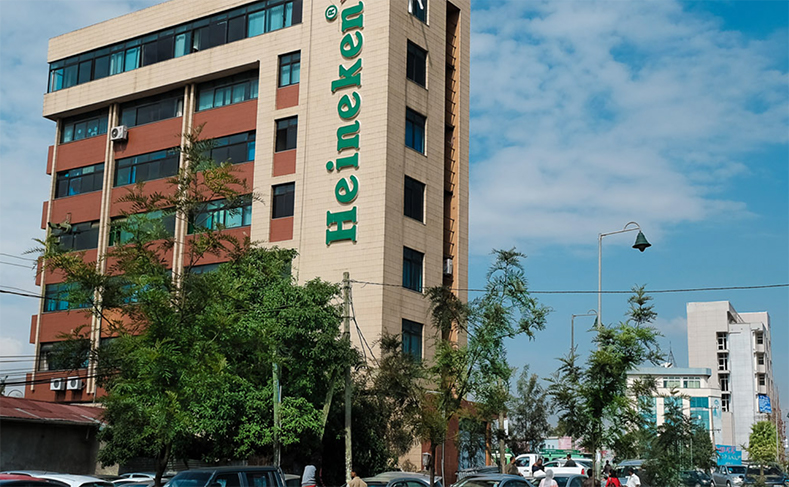
Verbatim | Apr 09,2022
Apr 16 , 2022
By BERSABEH GEBRE ( FORTUNE STAFF WRITER )
Hundreds of public projects under universities whose constructions are underway will see a massive injection of cash to adjust for inflation if a proposal tabled to the federal Macroeconomic Committee this week wins an approving nod. The prime minister chairs the committee, where the ministers of Finance, National Planning, and the central bank governor attend.
Drafted by the Construction Works Regulatory Authority, a federal agency supervising and evaluating progress on public projects, the proposal took six months to complete. It wants the federal government to infuse up to 28 billion Br into the budget of close to 450 public projects under 41 public universities. The move is in response to the ballooning prices for construction materials and inputs, which have deterred contractors from finalising these projects.
The government finances over 800 construction projects with nearly 100 billion Br. Almost 90pc are under the universities.
In March 2021, the Ministry of Finance issued circulars directing federal offices and public universities to adjust the contractual value of projects based on price changes for construction inputs. It was followed by another circular four months later, instructing that finishing materials should also be included on the price escalation list.
Yet, the circulars do not apply to all projects.
"We haven't seen any escalation done based on the circular, which is why we conducted this study," said Mesfin Negeo, director-general of the Authority.
Contractors take much of the blame for projects delayed. But the study discovered several other challenges, including failure to communicate decisions to change designs and contracts on time; budgetary constraints; failure to pay advance payments on time; and lengthy procurement processes, are driving costs up, along with inflation. Determining prices for construction materials has also been an impediment. Procurement laws dictate that price lists are determined based on data collected from local or foreign manufacturers or from a legally registered foreign company. But due to the bulkiness of the list, computing these prices has been a challenge, the study finds.
The lack of a construction inputs price index prepared at the national level exacerbates the problem. It leaves no choice but to collect and register prices from producers and suppliers.
The Ethiopian Statistics Service (ESS) has taken up the work to develop a price index survey focusing on construction materials and inputs in collaboration with the Authority. The project will determine the average prices of up to 30,000 materials used for construction. Over 100 data collectors will compile prices in a pilot project.
The period of project commencement of price escalations is another issue the study looked into. Regular bid documents state that “adjustments of contract prices shall be allowed 12 months from the effective date of the contract, where it is verified that the performance of the contract requires more than 18 months”. However, the effective date of the contract is often not defined and could be interpreted as the bid closing date, contract signing date, or project commencement date.
This is seen as a gap in the public procurement law currently being amended. The Authority recommends these issues be addressed in the amendment.
Considering projects that will take over one and half years are not included in the price escalation, the Authority designed methods to implement price adjustment. Its officials had initially created four methods but later reduced them to two.
"It was done to avoid confusion and ensure accurate implementation," says Mesfin.
Contractors like Tower Plc welcome the propositions. Incorporated 18 years ago with an initial capital of 3.5 million Br, Tower is handling one of the projects that expect additional financing from the federal government. It is building a dining hall in Dilla University, in the Southern Regional State, at 48 million Br. The construction firm was awarded the contract three years ago but was forced to cease work for 18 months due to disputes over the right of way. Although construction had recommenced, the contractor was forced to cease its work three months ago after running short of financing. The dining hall is less than half-finished.
Tower expects an additional 40 million Br to complete the project, according to Aboneh Gessese, a shareholder and general manager of the company.
"We've been asking for price revisions for a year now," Aboneh told Fortune.
Tower's dining hall is one of 20 projects under Dilla University. Dormitories and classroom buildings are some of the projects facing delays due to the rising cost of inputs, according to Befekadu Mekuria, manager of the construction project office at Dilla University. He says the increasing cost of construction materials is the main reason behind the delays.
"It has affected the intake capacity of the university," says Befekadu.
Close to 20,000 students are enrolled at Dilla University.
Tariku Dessu, a construction management expert, applauds the Authority's initiative to manage the skyrocketing inflation.
“The construction industry receives billions in public funds," he said. "Delays will have repercussions on the economy."
PUBLISHED ON
Apr 16,2022 [ VOL
23 , NO
1146]

Verbatim | Apr 09,2022

Radar | Nov 07,2020

Fortune News | May 14,2022

Covid-19 | Mar 31,2020

Fortune News | Nov 09,2019

Dec 22 , 2024 . By TIZITA SHEWAFERAW
Charged with transforming colossal state-owned enterprises into modern and competitiv...

Aug 18 , 2024 . By AKSAH ITALO
Although predictable Yonas Zerihun's job in the ride-hailing service is not immune to...

Jul 28 , 2024 . By TIZITA SHEWAFERAW
Unhabitual, perhaps too many, Samuel Gebreyohannes, 38, used to occasionally enjoy a couple of beers at breakfast. However, he recently swit...

Jul 13 , 2024 . By AKSAH ITALO
Investors who rely on tractors, trucks, and field vehicles for commuting, transporting commodities, and f...

Nov 1 , 2025
The National Bank of Ethiopia (NBE) issued a statement two weeks ago that appeared to...

Oct 25 , 2025
The regulatory machinery is on overdrive. In only two years, no fewer than 35 new pro...

Oct 18 , 2025
The political establishment, notably the ruling party and its top brass, has become p...

Oct 11 , 2025
Ladislas Farago, a roving Associated Press (AP) correspondent, arrived in Ethiopia in...